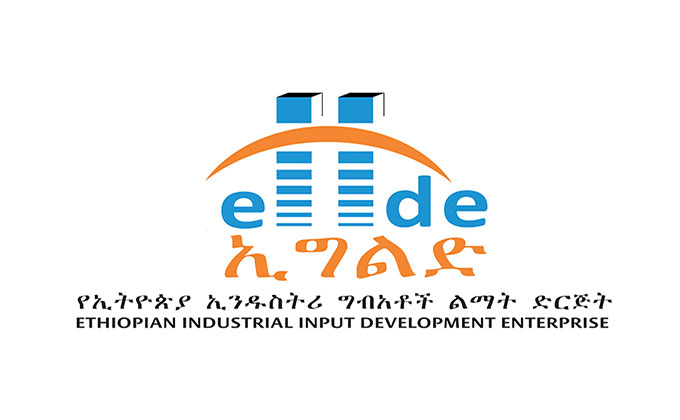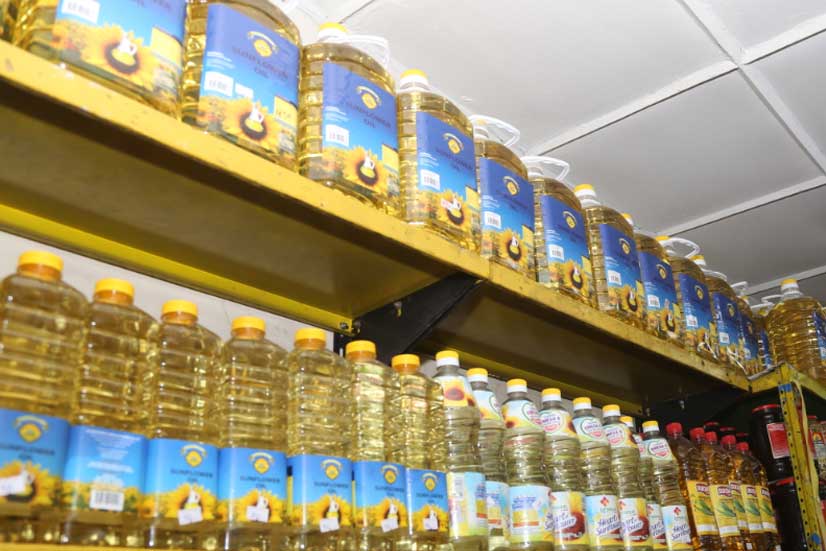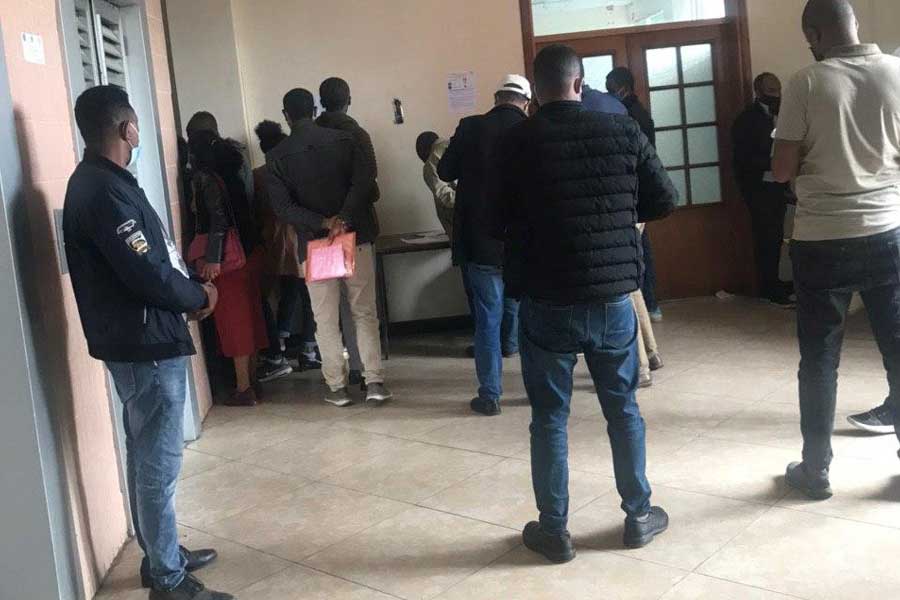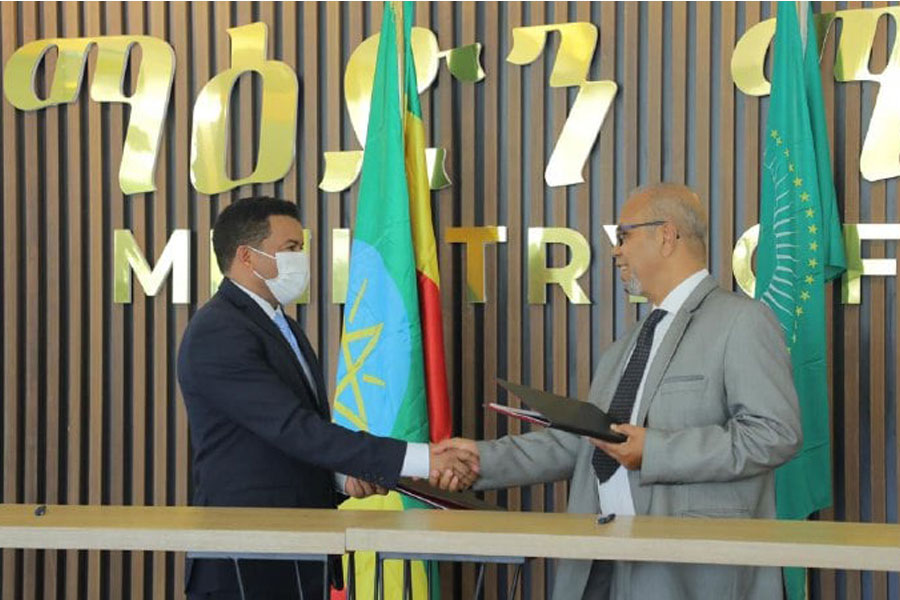
Fortune News | Sep 08,2019
Dec 14 , 2019
By ELIAS TEGEGNE ( FORTUNE STAFF WRITER )
 The government has started the process of procuring 66 million litres of refined palm and sunflower seed oil to fill the current market gap.
The government has started the process of procuring 66 million litres of refined palm and sunflower seed oil to fill the current market gap. The government has started the process of procuring 66 million litres of refined palm and sunflower seed oil to fill the current market gap.
For the procurement of the edible oil, the Ethiopian Industrial Inputs Development Enterprise has floated a tender searching for a company that will import and supply 60 million and six million litres of palm and sunflower oil, respectively.
For the supply of the oil, 62 companies from Bulgaria, Djibouti, Egypt, Indonesia, Malaysia, Turkey and Ukraine bought the bidding document from the Enterprise. Out of them, 16 suppliers returned the bidding document.
Healthcare Food Manufacturers, a company that engages in canned food provision, is the only local company that participated in the bidding process. Pacific Interlink, a company that won the previous bid, participated in the bidding process through its sister companies, Golden Africa and Pacific Group.
The winning company will supply the palm oil in three, five and 20lt containers, while the sunflower seed oil will be supplied in three and fivelitre containers. The oil was originally expected to arrive starting from the end of this month.
During the preliminary screening process, Alabol Company was barred from the tender, because it submitted both the technical and financial bids together as one document.
The winning company will supply the palm oil in three, five and 20lt containers, while the sunflower seed oil will be supplied in three and fivelitre containers. The oil was originally expected to arrive starting from the end of this month.
The companies will be selected if they comply with the detailed standards and specifications of the Food & Drug Administration and the Ethiopian Conformity Assessment Enterprise, according to Emebet Mulu, communications director at the Enterprise.
The specifications for refined palm oil have 38 parameters including minimum and maximum levels of required vitamin A and D contents, while 18 parameters are set for the refined sunflower seed oil.
For the procurement of the edible oil, the Ethiopian Industrial Inputs Development Enterprise has floated a tender searching for a company that will import and supply 60 million sunflower oil.
Following the recurrent shortage of edible oil in the market, the government has sought to devise a way to mitigate the problem in 2010. One of the proposed schemes was to subsidise cooking oil and distribute it through cooperative unions across regional states and city administrations in the country.
In 2011, the government also banned private companies from importing palm oil, allowing only governmentowned firms to import it. Four years after, the Ministry authorised 10 companies, including five private firms, one governmental organisation and four endowments to import the commodity.
The Enterprise, which was reestablished in 2014 with 3.9 billion Br in capital and operates with 85 branches across the country, is one of the endowments licensed by the Ministry of Trade & Industry to import refined palm and sunflower seed oils.
Currently, the Enterprise is importing 30 million litres of palm oil and an additional three million litres of sunflower oil worth 713 million Br in an effort to diversify cooking oil imports. Pacific Interlink, an Indonesian company Pacific Interlink, is the supplier of the oil.
Lately, the Ministry of Trade & Industry has also allowed private companies to import basic food items including oil, wheat and sugar.
Henok Semaw, an as s i s tant professor and dean of business and economics at Harmaya University, believes that importing the oil cannot be a sustainable solution and says that the government should consider supporting local micro oil manufacturers to upgrade their capacity.
Currently, there are over 1,000 companies that are registered by the Ministry of Trade & Industry to process oil in the country, and over 912 companies import cooking oil. The average per capita consumption of cooking oil stands at 8.9lt of oil a year.
“To maintain the oil manufacturers’ capacity," said Henok, "a policy revision is essential, and it may have to include allocating land, free duty benefits and hiring leased machinery."
PUBLISHED ON
Dec 14,2019 [ VOL
20 , NO
1024]

Fortune News | Sep 08,2019

Radar | Jan 07,2023

Fortune News | Jun 24,2023

Viewpoints | Apr 13, 2025

Fortune News | Aug 29,2020

Fortune News | Apr 02,2022

Radar | Jan 05,2019

Fortune News | Jan 15,2022

Radar | Nov 27,2018

Fortune News | May 02,2020

Dec 22 , 2024 . By TIZITA SHEWAFERAW
Charged with transforming colossal state-owned enterprises into modern and competitiv...

Aug 18 , 2024 . By AKSAH ITALO
Although predictable Yonas Zerihun's job in the ride-hailing service is not immune to...

Jul 28 , 2024 . By TIZITA SHEWAFERAW
Unhabitual, perhaps too many, Samuel Gebreyohannes, 38, used to occasionally enjoy a couple of beers at breakfast. However, he recently swit...

Jul 13 , 2024 . By AKSAH ITALO
Investors who rely on tractors, trucks, and field vehicles for commuting, transporting commodities, and f...

Aug 30 , 2025
For Germans, Otto von Bismarck is first remembered as the architect of a unified nati...

Aug 23 , 2025
Banks have a new obsession. After decades chasing deposits and, more recently, digita...

Aug 16 , 2025
A decade ago, a case in the United States (US) jolted Wall Street. An ambulance opera...

Aug 9 , 2025
In the 14th Century, the Egyptian scholar Ibn Khaldun drew a neat curve in the sand....